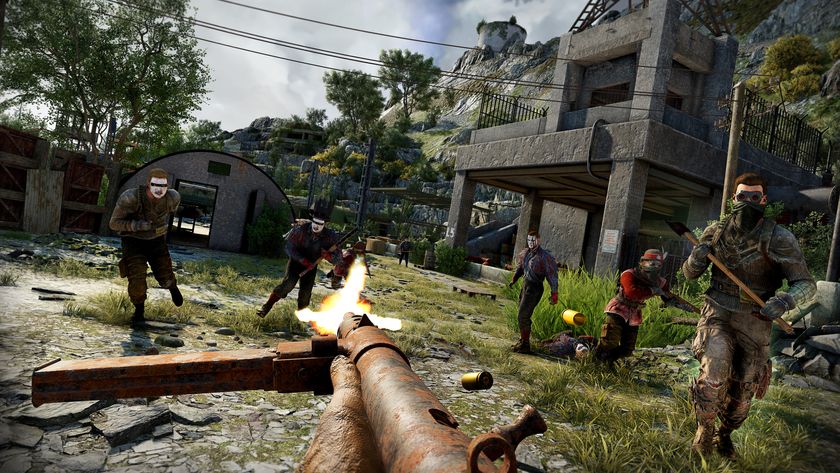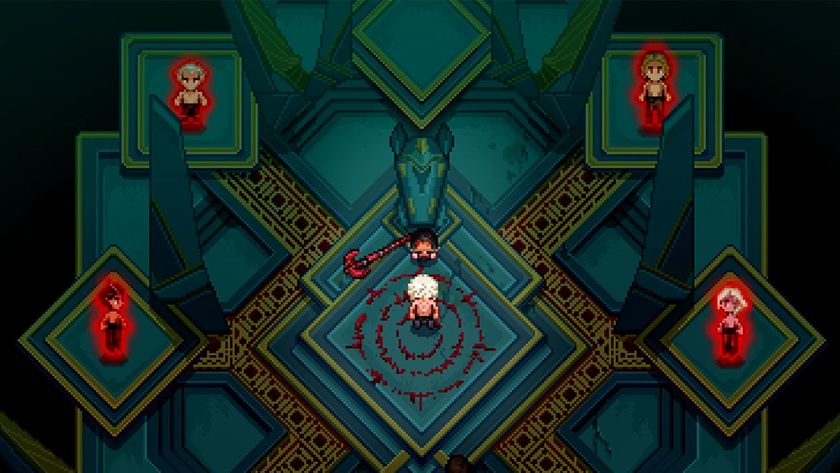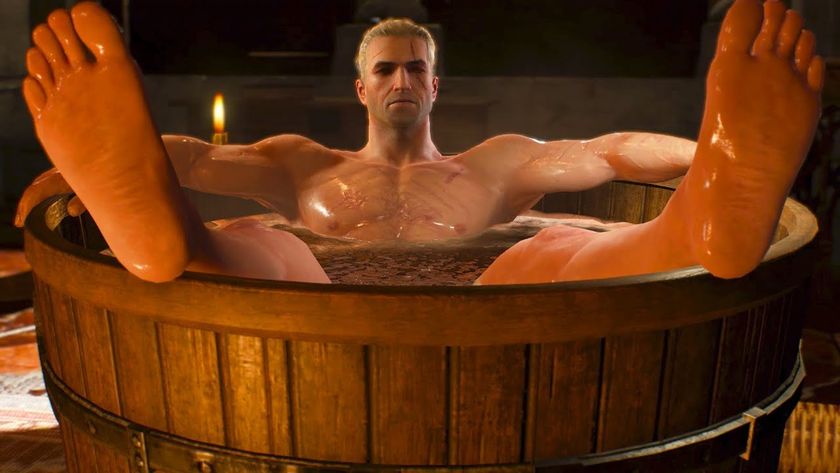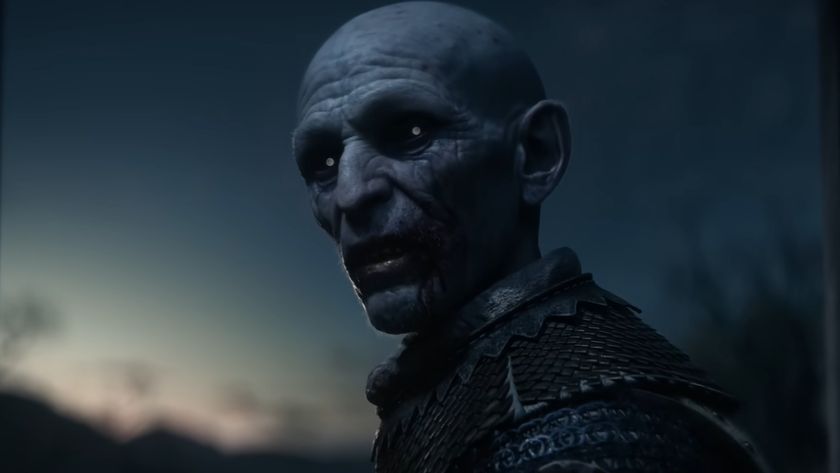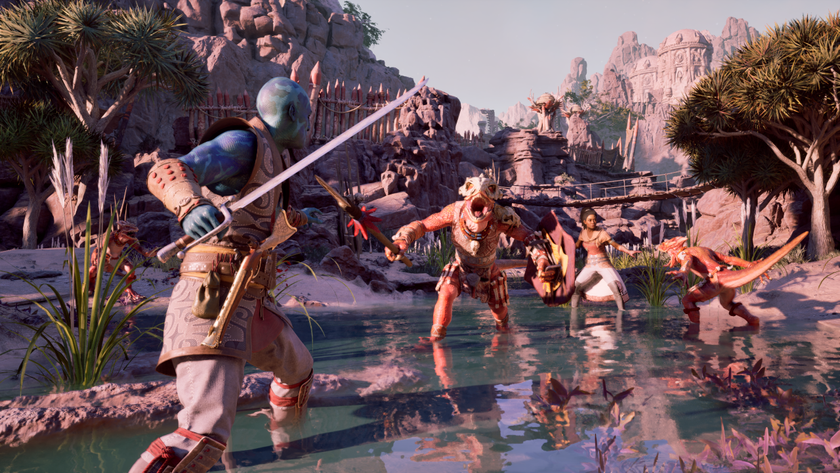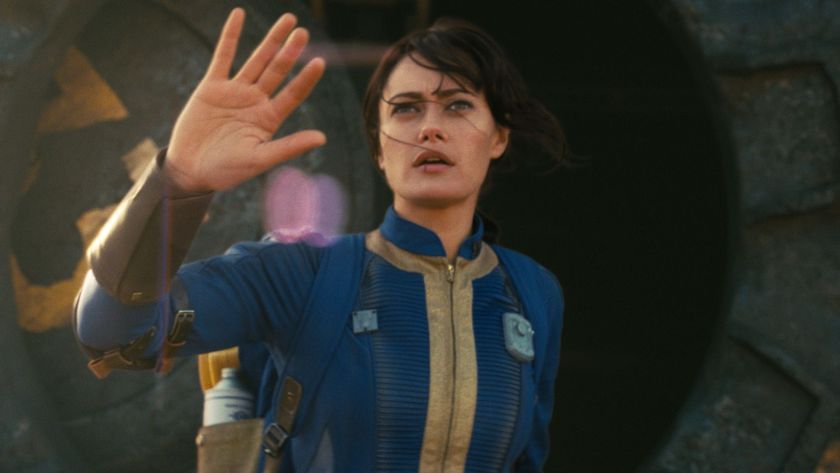Bayonetta meets Battlestar Galactica in Nier: Automata
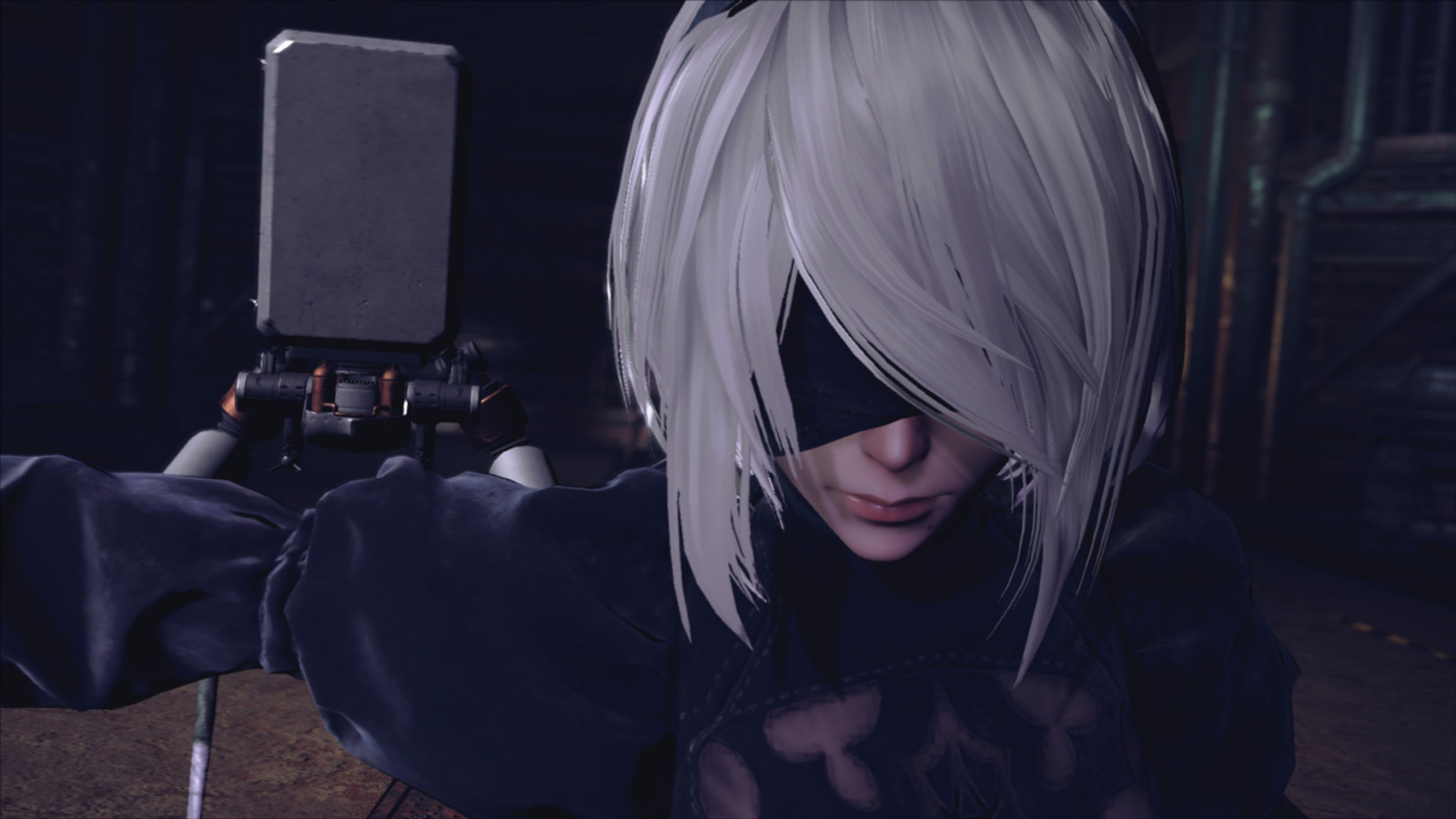
Nier, the cult-classic action RPG from back in 2010, is about as far from the mainstream as big-budget games get. With its intricate story, enigmatic characters, haunting soundtrack, and uniquely grim, fantastical vision of the post-apocalypse, Nier left an indelible mark on players who took a chance on the obscure title. The only thing that seemed to be holding back Nier's singularly weird presentation was the somewhat clunky gameplay - which is exactly what the longshot sequel Nier: Automata aims to fix. This collaboration between Square Enix and PlatinumGames blends all the bizarre, heady concepts from the original Nier with silky smooth combat to deliver something that feels wholly new in a pre-existing universe that felt - and still feels - wholly different from every other game out there.
Earth is in shambles after a sudden invasion by an army of hostile machines, so humanity is forced to take refuge on the Moon and send in combat androids to fight its battles. You play as 2B, one of the androids from the YoRHa infantry unit, who must cut her way through legions of robots alongside her squadmate 9S to fulfill her purpose on our planet. With character designs from Akihiko Yoshida, the immensely talented artist who most recently helmed the art direction for Final Fantasy 14, 2B and 9S' lithe, youthful chassis are a stark departure from the gruff, grizzled protagonist of the previous Nier (though they wear similar masks, which are actually high-tech tinted visors rather than ineffectual blindfolds). If you missed the first Nier, don't worry - Nier: Automata takes place millennia later, so you don't need to know any specifics about the original (or the Drakengard RPG series it spun off of). "I wanted everyone - even the fans of the previous title - to feel like this is a new title, this is fresh, this is refreshing," says Saito Yosuke, a producer on Automata. "You really don't need to know anything about the previous title, or any background knowledge, to enjoy this game."
PlatinumGames has made a name for itself with supremely polished action games like Bayonetta, Vanquish, and Metal Gear Rising: Revengeance, and its expertise at crafting fast, fluid combat can instantly be felt here. 2B moves with a flowing grace as she slices through her metallic opposition, which mostly consisted of R2D2-like droids during my brief hands-on demo. Creating combos on the fly by alternating between light and heavy attacks feels immensely intuitive, the mobility of 2B's dodge feels tightly tuned, and all the flashy fighting unfolds at a steady 60fps. The level I tore through was a dilapidated factory defined by the deep hues of tar, iron, and rust, while trailers have shown 2B exploring open-world environments set among the muted greens of forests sprouting from the remnants of a toppled skyscraper, or the tan sands of a vast desert. This particular post-apocalypse is devoted to a sensation of desolation, which gives it a distinctly different flavor than the colorful, verdant ruins of Enslaved, Bulletstorm, or The Last of Us.
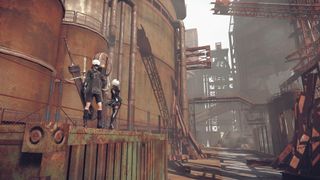
Nier: Automata also retains many of the distinct combat twists from the first: you can bolster or supplant your melee onslaught with ranged gunfire (using a Pod companion 'bot in place of the original's grimoire), many enemies attack you with a barrage of bulbous, destructible red orbs shot in bullet-hell-style patterns, and certain sections of the levels will pull the camera back, shifting the skirmishes from third-person to top-down or 2D encounters. But no matter the camera angle or which type of machine you're slashing through, the satisfying, responsive controls are a constant, and the pacing feels precisely tuned whether you're deftly cutting through hordes of baddies or coming to grips with the most effective tactic to take down an unfamiliar enemy type. It's no wonder that the sword combat feels so superlative: Takahisa Taura, an alum from Metal Gear Rising, is leading Automata's game design. For those who want to enjoy the storyline but may not have the twitch reflexes needed to advanced, an Auto Mode will be available that simplifies combat and automates the evasion of incoming attacks. Yosuke makes sure to add: "We do have difficulty levels - Easy mode, Normal, Hard, and Very Hard - and you'll be able to switch between these levels whenever you want to, to cater to your proficiency level."
If Automata's action evokes the likes of Metal Gear Rising and Bayonetta, the premise seems to borrow from the sci-fi suspense of 2004's Battlestar Galactica reboot. The similarities go deeper than the fact that we're following robots who fight and kill other robots - there are also deep ties to the show's moral quandaries that come with trying to determine the value of an android's life, if it can even be said to possess one. Those ethical dilemmas are also reminiscent of the first Nier, even if they're brought about through technological means this time around. "When you hear robots or androids you would not imagine them to have much emotion - they might be more like automatons, they just do what they're told," says Yosuke. "But they actually do have emotions; they might even act more emotional than humans do." Taro Yoko, the auteur of the Drakengard and Nier games who's returning as the director of Nier: Automata, has a cult following for his ability to craft sometimes cynical, sometimes heartfelt storylines that defy every convention of the typical action RPG. "I think fans of the previous title really like the worlds that Yoko-san creates, where [the focus is on] the relationships between the characters, as well as their inner ugliness," says Yosuke.
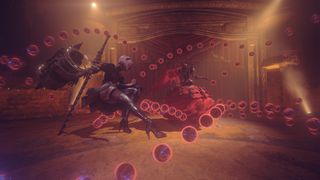
As the producer on Nier: Automata, Yosuke almost acts as the surrogate to the reclusive Yoko, who you may remember for his appearance at Square Enix's E3 2015 debut of Nier: Automata, where he hid his face beneath a ghoulish mask replicating one of Nier's main characters. And because Yosuke works closely with Yoko to bring his vision to market, he can offer an insider perspective on some of Yoko's trademark design elements. "For the previous titles, ever since the Drakengard series, they don't really end on a good note - after you finish playing, you don't really feel that great," says Yosuke. "So when we came out with Nier, one thing that I requested was to 'At least let me feel good after I finish playing'. But for Automata, I said 'Whatever you want to do is what we want to do'. So he had complete freedom with the storyline."
Yoko's penchant for unsatisfying endings is another parallel to Battlestar Galactica, in which some beloved characters meet tragic or inglorious deaths. But then, Battlestar never had a scene in which giant, infant-like beings descend upon a protagonist and eat her alive. "Rest assured, we won't have any crazy endings like that in Automata," laughs Yosuke. "Yoko-san would never say this out loud, but I do think that he actually does want to leave some kind of a mark within the hearts of the players. When I first read the plot for Nier: Automata, the first thing I thought was 'Oh my god, what is this storyline? No one is happy in it, no one is saved!' But we really did make a happy ending with this game, so don't worry about it!"
Sign up to the 12DOVE Newsletter
Weekly digests, tales from the communities you love, and more
"No one does believe me if I say that," Yosuke adds with a smirk.
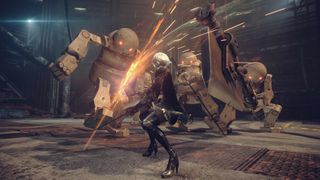
Whether or not Yosuke is being truthful, Yoko's willingness to go in such dark, grotesque, utterly unpredictable directions is part of what makes Nier and Nier: Automata so special. You have to remember that these games were made under the purview of Square Enix, a company built on grandiose RPGs that are engineered for mass appeal, only dipping their toes into Weirdness Lake rather than diving in headfirst like Yoko and co. Drakengard and Nier's mature themes and disturbing developments fly in the face of the studio's largely family-friendly megahits. "Given that Final Fantasy, Dragon Quest, and Kingdom Hearts are out there, acting as the staple titles for Square Enix, we can actually hide in their shadow and do what we like," laughs Yosuke. "It's a very fun project - it's like we're just secretly hiding, [adding things to the game that] we haven't told anyone about, even our superiors."
Because Nier caters to a narrow, albeit devout, niche, it seems unlikely that Nier: Automata will wriggle its way into the mainstream, even with the involvement of PlatinumGames. Yet the development team seems to have accepted, and even embraced, that freedom to do as it likes in the shadows, meticulously crafting the kind of unforgettable world you wouldn't expect to see from Square Enix. Yosuke doesn't sound overly concerned about Nier: Automata's commercial success, staying focused on helping Yoko and his team realize this android-filled, emotionally disquieting forecast of our distant future. "If it becomes really popular, then I would be very surprised. But if that happens, then our next title will be an all-ages title," laughs Yosuke. "If it sells really really well, I'll negotiate with Disney to have Mickey Mouse appear in the next game."
Lucas Sullivan is the former US Managing Editor of 12DOVE. Lucas spent seven years working for GR, starting as an Associate Editor in 2012 before climbing the ranks. He left us in 2019 to pursue a career path on the other side of the fence, joining 2K Games as a Global Content Manager. Lucas doesn't get to write about games like Borderlands and Mafia anymore, but he does get to help make and market them.
